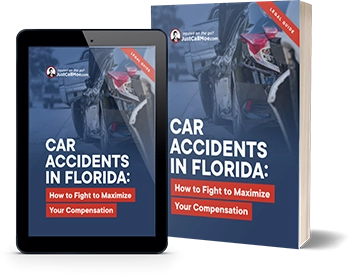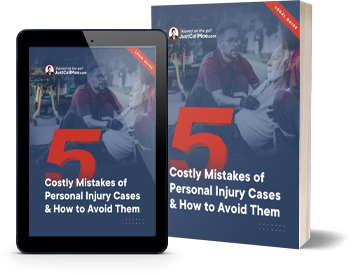In any personal injury case, the plaintiff must prove the defendant owed them a legal duty to protect them from a particular injury and failed to do so. In the context of a slip-and-fall accident, for example, a customer injured while shopping at a store must show they were hurt due to a dangerous condition that the store’s owner or manager failed to correct. This, in turn, requires proof that the store had “notice” of the dangerous condition.
Walmart, Injured Shopper Disagree Over Source of Liquid on Floor
In most personal injury claims, it is impossible to prove that a property owner had “actual” notice of the hazard that injured someone. Fortunately, Florida law allows the victim to prove their case by showing the defendant had “constructive” notice. If you can show the problem existed for a sufficient length of time such that a responsible store owner would have seen the problem—had they bothered to look for it—then a judge or jury may conclude the owner was effectively “on notice.”
What qualifies as a “sufficient length of time” will vary based on the facts of a given case. But it can be proven entirely through circumstantial evidence. A recent decision from a federal judge here in Florida, Haughton v. Walmart, Inc., provides a case in point. The plaintiff in this case was shopping at a Walmart when, according to court records, she “slipped and fell on a liquid substance on the floor.” She subsequently filed a personal injury lawsuit against Walmart. (Although personal injury cases are governed by Florida state law, Walmart transferred the case to federal court since it is an out-of-state corporation.)
Walmart then moved for summary judgment in federal court. Essentially, Walmart argued that there was no evidence to support the plaintiff’s allegation that the store management had actual or constructive notice of the “liquid substance” that caused the plaintiff’s fall. Indeed, Walmart attempted to shift the blame to the plaintiff, suggesting that one of her young children had peed on the floor. The plaintiff disputed this claim.
In ruling on the summary judgment motion, the judge did not resolve this particular evidentiary dispute. But he did deny the motion for summary judgment, allowing the plaintiff’s case to proceed to trial. The judge said there was no evidence to show that Walmart had actual knowledge of the substance on the floor prior to the accident. But the plaintiff nevertheless presented enough evidence for a jury to conclude that Walmart had constructive knowledge.
On this point, the plaintiff’s husband testified in a deposition that the store manager told him the substance on the floor was urine from a service dog that had been in the store about 10 minutes earlier. The husband claimed that the liquid on the floor was “smudged,” indicating that “a bunch of stuff had gone through it.” If, in fact, the liquid came from the dog, that could support the plaintiff’s claim that Walmart had constructive notice.
Injured at the Store? JustCallMoe Today
Nobody expects a routine trip to the store to end in serious injury. But if you are injured in a slip-and-fall accident arising from a store owner’s negligence, it is best to speak with a qualified Winter Haven personal injury lawyer. JustCallMoe today to schedule a free consultation.

 (866) 225-5663
(866) 225-5663




 100% Secure and Confidential
100% Secure and Confidential